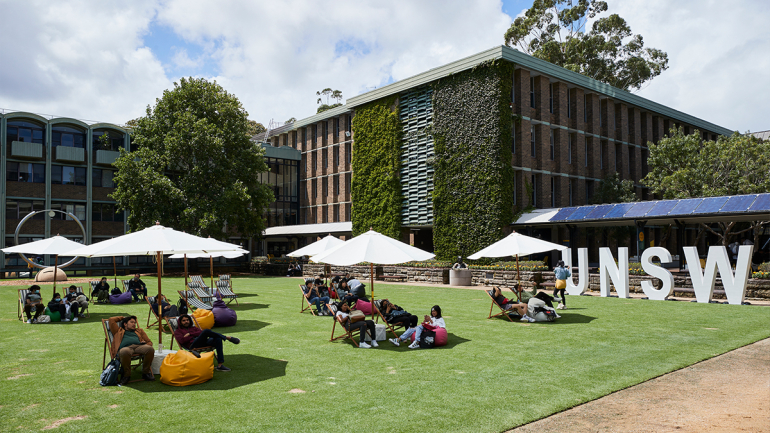UNSW's Environmental Sustainability Report 2023 was released on Wednesday 5 June. The report marked the second year of implementation for our Environmental Sustainability Plan 2022-24, and also marked a sobering year in climate records.
Last year was officially the warmest year on record since temperature measurements started in 1850. The global average temperature soared to a staggering 1.46°C above pre-industrial levels (Global Climate Highlights 2023 | Copernicus).This alarming record underscores the continued need for UNSW to pave the way towards a future that is environmentally sustainable and secure for all.
“UNSW has deep credentials in sustainability, renewables, clean energy and water, with world-leading experts committed to tackling climate change, reducing waste and protecting biodiversity,” said Professor Attila Brungs, UNSW Vice-Chancellor and President.
“The notable accomplishments outlined in this report demonstrate the significant strides UNSW has continued to make in its quest to secure a more liveable world.”
Celebrating our achievements
Among other achievements recognised in the report, in 2023 UNSW:
- continued implementation of the electrification program by completing concept designs for electrification upgrades to 10 buildings and commencing concept designs for a further 11 buildings
- developed a new Sustainable Procurement Framework and Roadmap, aiming to align UNSW purchasing activity with its environmental and social goals
- achieved third-party assurance of UNSW greenhouse gas emissions completed for the first time
- expanded the Laboratory Efficiency Framework (LEAF) program, with 42 teams now LEAF accredited University-wide including the first LEAF Gold award in Australasia
- completed a supply chain nature assessment and developed a multi-year roadmap to address impacts and risks in the UNSW supply chain and build internal capability
- developed a metric to track nature value at Kensington campus, enabling nature to be embedded in campus planning
- had five more food and drink retailers achieve a Plastic Free Dining Gold award, with 27 of 28 UNSW retailers now having a Bronze, Silver or Gold award.
World Environment Day is a United Nations event that reminds us to take action to conserve and protect our natural environment. The theme for World Environment Day 2024 is #GenerationRestoration, a reminder that although we can’t turn back time on land degradation, we can grow forests, revive water sources and bring back soils.
UNSW Head of Environmental Sustainability Will Syddall said, “In 2023 we took our first steps to understand the impacts of our operations and supply chain on nature, and to create a nature positive roadmap. We developed a methodology to track nature value at Kensington campus, enabling the prioritisation of campus greening in planning and development, and completed an assessment of our supply chain nature impacts. In 2024 we are continuing our work to develop and embed a roadmap to become nature positive.”
How you can support the Environmental Sustainability Plan
You can find a range of useful resources to help embed sustainability principles into day-to-day activities on the ‘take action’ page of the Environmental Sustainability website. These include an action plan template for faculties and divisions, and guides for sustainable events, offices, reuse and recycling at UNSW.
The LEAF program, an initiative that aims to drive sustainable laboratory practices, continues to grow in 2024. Registration for LEAF at UNSW is open now to all students and staff working in laboratories.
You can read the Environmental Sustainability Report 2023 now and find out more about sustainability at UNSW on the Environmental Sustainability website.
Any questions? Email us at sustainability@unsw.edu.au.
